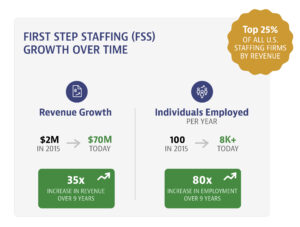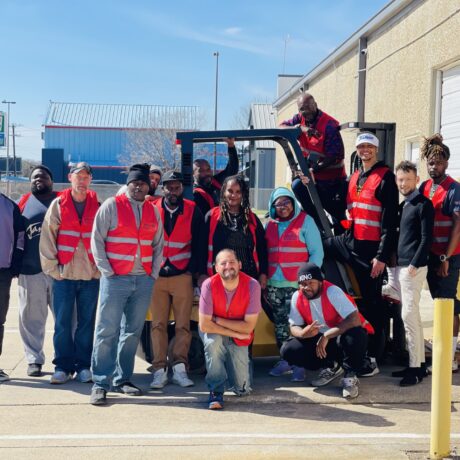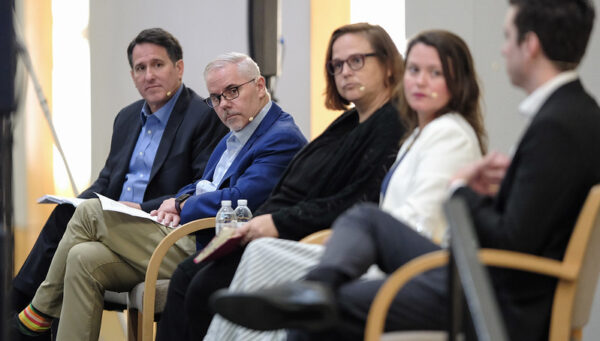Key Highlights
Challenges
Success at work provides much–needed income for basic needs like food and shelter, but it also provides intangible benefits — like dignity, hope, and access to social capital — that are especially critical for people who are experiencing other challenges, such as a lack of housing. Yet most staffing agencies do not focus on these harder-to-serve populations.
Opportunities
Now hiring and placing more than 7,000 workers each year, FSS has grown to one of the nation’s top staffing firms, with offices in seven locations across the U.S. that successfully compete with for-profit agencies while serving populations that traditional firms would not serve.
FSS’ blended revenue model combines traditional employer fees with grants from governments and philanthropies — which led them to a pay-for-success partnership with California’s San Bernardino County in 2019. The County paid $1.5 million to FSS, which committed to placing at least 70% of the County’s worker referrals in jobs, up to a maximum of 2,000 individuals each year. If FSS failed to achieve this goal, it would make a partial repayment to the County. As part of this project, FSS purchased a for-profit staffing agency that had contracts with thousands of employers in the area. The contract between FSS and the County worked as planned despite unexpected challenges, such as the COVID-19 pandemic; FSS ultimately placed 2,100 unique individuals but did not meet all of its contract goals, so it repaid the County $268,170 of the initial $1.5 million grant. The County and FSS continue to work together to address employment for unhoused people in the area

Key Takeaways
- First Step Staffing’s earned revenue enables them to sustainably deliver staffing to clients, while supplemental grants enable FSS to successfully hire and place workers who face barriers to employment.
- Governmental and program incentives must be aligned for pay-for-success programs like this one to be successful.
- Programs must be financially stable enough to repay funds if they don’t meet targets. It is helpful if these programs need only startup capital and can then generate enough revenue to cover their operational costs.


